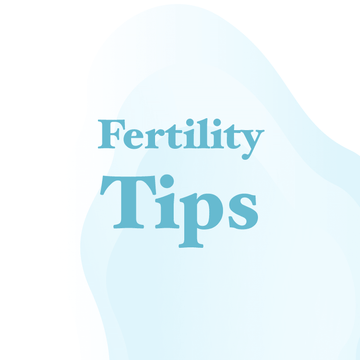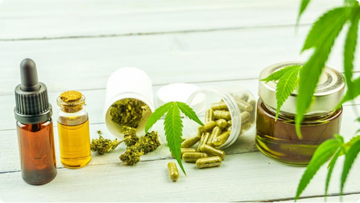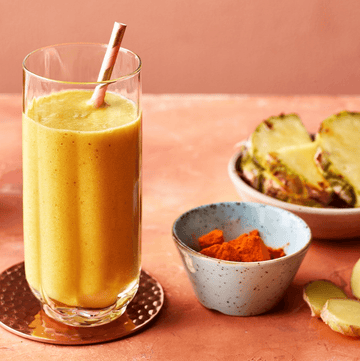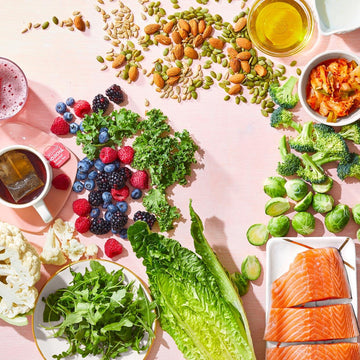
“Back in the day” traditional fertility practices consisted of cultures feeding newly married couples a particular meal on their wedding night in order to increase the couple’s reproductive chances. While one meal alone may not be sufficient, many meals throughout a period of time leading up to a desired conception date are proven to be effective. The diet of both the mother and father before conception, and the diet of the mother during her pregnancy, will largely determine the appearance, intelligence, physical health and emotional and mental well being of their offspring!
What kinds of nutrients and lifestyle tips are necessary for preparing our bodies for pregnancy? The following key nutrients will not only be necessary for a healthy pre-pregnancy but will also help to ensure the optimal health of the growing baby during the mothers term.
While our health guidelines primarily focus on take a ‘prenatal’ vitamin when you become pregnant, many stress the importance of taking it in the lead up to conception as the vitamins and minerals it contains are vital. Why? It is vital because it sets the foundation for your nutritional stores in the body. There really is so much more involved in preparing your body for pregnancy than people consider. Along with all the important vitamins and minerals you gain from a prenatal vitamin, here are a few highlighted nutrients and lifestyle considerations that ensure a healthy pre-pregnancy environment.
Lifestyle: We must work to reduce the impact and effect of stress in our body! Here we will talk about nutrient-depleted stress. “NDS” impacts your adrenal glands and their ability to signal to other various organs to tell them “your environment is safe, it’s an ideal time to have a baby.” You must refrain from ‘dieting’. With many diet ‘fads’ you are often depriving your body of necessary food and nutrients needed for preparing the body for a healthy pregnancy. The same applies if you are frequently consuming non-nutrient rich foods and foods with harmful nutrients such as trans-fats and refined carbohydrates. This will also cause stress in the body.
Vitamin K2. Maybe you have heard of simply vitamin K, however, there are two forms, K1 and K2. Each with different but critical roles in the body and each come from different foods! Most prenatal vitamins contain K1. Our bodies are inefficient at converting K1 into K2. This means that you would be better off trying to consume K2 directly. Vitamin K2 comes from the synthesis of K1 in animal tissues. Vitamin K1 is associated with the chlorophyll of green plants created through photosynthesis activity. If you eat a lot of awesome green leafy vegetables, you are certainly obtaining lots of K1, but the conversion is quite sparse. Vitamin K2 is highly connected to vitamins A & D. Together, these 3 nutrients represent 3 of the 4 fat soluble vitamins humans require in striving for optimal health.
K2 plays a role in reproduction for both male and female bodies (sperm have a K2-dependent protein), infant growth, facial structure, mineral utilization, bone density, protection from cavities, and protection from fatigue. It supports mental development and neurological health. It also protects against calcification and inflammation of blood vessels.

The best sources of K2 are grass-fed, organic butter, and grass-fed unpasteurized buttermilk. Another option is to take a cod liver oil supplement due to its high concentration of vitamin A and D. You can also get a cod liver oil that also has high-vitamin butter oil (meaning high K2 values).
A major nutrient to ensure you consume on a consistent basis leading up to and during pregnancy are omega-3 fatty acids. These essential fats must come from foods that we consume. Consuming omega-3s increases fertility; it boosts your hormonal balancing which will ultimately impact the timing and likelihood of successful conception. Research from University of Harvard had shown that women who consumed more animal sources of fat had fewer mature oocytes (cells that form eggs). On the flip side, women who consumed more nuts, seeds, avocados, grass-fed butter, had better pregnancy outcomes. Similar research indicated that excess caffeine intake can stimulate blood sugar levels, over-stimulate the adrenal glands and affect elimination – which will all disrupt hormonal balance.

Iron is one of those tricky minerals that the female body relies on. So many women have low iron due to the simple fact that we have a regular menstrual cycle. Some however, may also have a lower iron levels as a result of food intake. Growing a baby takes a lot of iron, and if the body is already deficient, the health of the fetus will be lowered. Some of the best iron rich sources are animal products (if this is applicable of your lifestyle). Others include sardines, anchovies, and oysters. Of course, those leafy greens I brought up earlier will provide you with some much needed iron as well! Beans and legumes are also and iron dense alternative option to meat. Blackstrap molasses is one of my favourite ways to incorporate iron (and magnesium) into my nutritional regiment. Most often I will add it in a simple form of tea or added to smoothie, or sometimes even in my baking.

Inflammation throughout the body, (from any source), will impact the genetic material of the female eggs. One way of reducing inflammation is by consuming anti-inflammatory foods and spices! Omega-3 fatty acids are anti-inflammatory. A few other ways to reduce inflammation is to include spices like turmeric in your everyday cooking or beverages. Turmeric will increase blood flow to the ovaries, keeping them healthier and thus improve the chances of conceiving. Try the Blume Cacao Turmeric Blend! It contains organic cacao (iron and magnesium), organic turmeric, organic cinnamon, organic ginger, organic nutmeg, organic black pepper and organic ashwagandha. This blend is designed to reduce stress and anxiety while also reducing inflammation.

Mentally, be creative! Its is a significantly creative process from preconception onward! Start thinking, feeling, and being creative in all areas of your life, not just with respect to fertility! Women are designed to be creative and fertile in all areas of our lives. Remove the stress! Relax! Celebrate what you have done in your life so far! Make room for the creative energy to flow into your reproductive life as well!
A few examples of foods and products to use frequently would be:
Buckwheat (the grain). While it would seem that this would be a gluten/wheat containing grain, it is not. Buckwheat contains a form of inositol that has been proven to support insulin levels and testosterone levels while increases the rate of ovulation.
Of course, we can never go without our beloved leafy greens, in any lifestyle choice! Leafy greens are packed full of folic acid among many other critical nutrients (vitamin E, magnesium, calcium for example) that are essential for ovary health, healthy cycles, and prevention of birth defects.
Chickpeas and other legumes for only 1 serving a day include proper B6 amounts, essential for healthy progesterone levels, ideal for conception as well as improved sperm and egg development.
Eggs, whole eggs, is an ancient sign of fertility in certain cultures, especially when you consume the egg yolk as well! Free-range eggs contain vitamin D, choline and healthy fats that will support hormone health and ovulation.
Salmon is another great source of omega-3 fatty acids required for optimal hormones, ovulation, increasing cervical mucus and blood flow to those reproductive organs.
There are definite ways that one can increase their fertility. However, there are also ways that you can limit you long-term fertility. How you wish to optimize your body is up to you! Stay tuned for more on this in the next blog.
Cara Janzen, H. BSc. RHN is an AURA Community member with a belief to help make you rich – nutritionally! As a Registered Holistic Nutritionist, she is equipped with a B.Sc. and have a background in Biological Sciences and Psychology.
References:
Colaci, D.S., et al; “Dietary Fat Intake and In-Vitro Fertilization Outcomes: Saturated Fat Intake Is Associated with Fewer Metaphase 2 Oocytes.” Human Reproduction 27 (2012): ii78-ii79. Doi:10.1093/humrep/27.s2.52.
Kesmodel, U.S., et al. “Does Coffee Consumption Reduce the Chance of Pregnancy and Live Birth in IVF.” Human Reproduction 27 (2012): ii78-ii79. Doi:10.1093/humrep/27.s2.52.






